Q&A With Brett Ryan Bonowicz, Director of 'The Perfect 46'
In Brett Ryan Bonowicz's film, 'The Perfect 46,' genetics creates perfect babies.
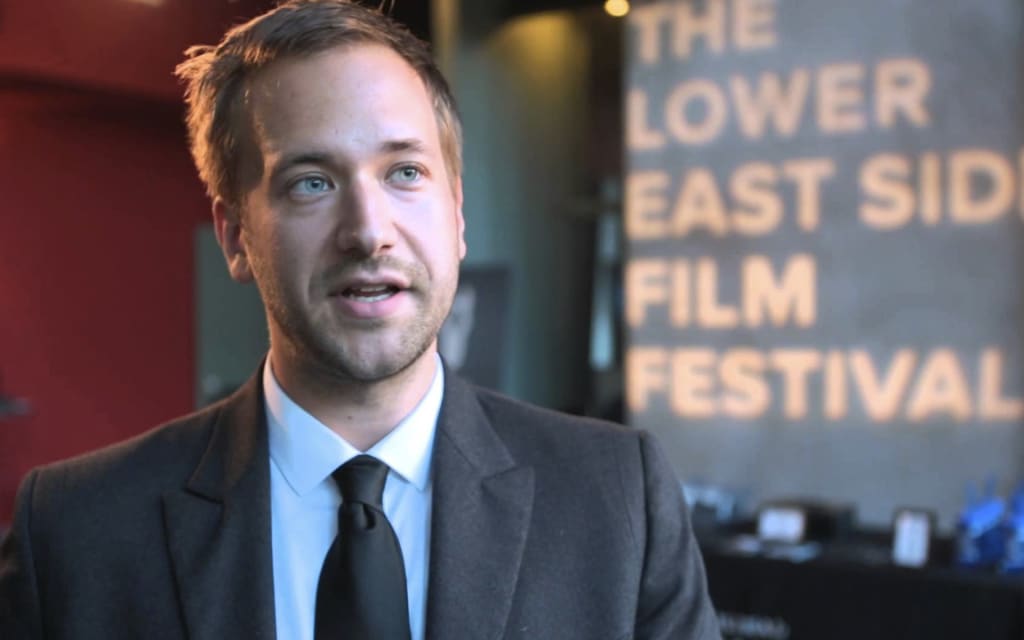
In The Perfect 46, genetic engineers match couples by their genome to create perfect babies. Whit Hertford plays the CEO of The Perfect 46, Jesse Darden, who wants people to choose their partners logically rather than falling in love. Darden believes genetically compatible couples will create babies resistant to disease. Society lashes out against The Perfect 46, leading to a home invasion of Darden's residence.
OMNI: You call The Perfect 46 a "science factual" film. Could you tell us more about why you chose to label the film "science factual"?
Brett Ryan Bonowicz: Walt Disney called the "Tomorrowland" episodes of the Disneyland television show "science factual," and those programs have always been inspiring to me not only for their innovative look into the future but for their factual accuracy. As I finished writing the script, I felt the term captured exactly what we were trying to accomplish.
Were there any facts that you were willing to compromise accuracy for?
As we approached production, I really tried to be a protector of the science and tried to make sure we were keeping things realistic. With the story we were telling, I really felt if we didn't compromise on the science, the audience would have a more rewarding experience because the questions they were asking weren't just hypothetical's about space colonies but real life situations that could be happening in the coming decade.
What inspired you to create this film?
I had wanted to make a science fiction film and I knew I was going to be working with a very low budget. Early on, I knew I wanted to have these two characters debating about an issue, and I had been reading a lot about consumer genetics at the time and the idea for the company The Perfect 46 came out of that.
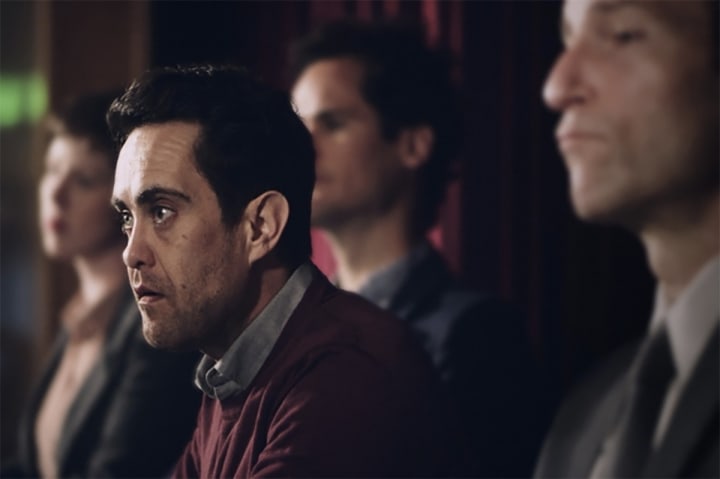
Do you have a background in science?
I don't have a background in science but I have a strong interest in the field. Most of my reading is related to science and technology.
What lead you to explore medical ethics in the movie?
As an audience member, I found it frustrating that I couldn't find films that asked these ethical questions without turning into an evil clone movie with a massive car chase in the end. To me, the ideas we were exploring were so interesting, and so filled with these wonderful gray areas where there was no definitive right and no definitive wrong that I wanted to see if it was possible to sustain the narrative simply exploring ideas related to genetics and eugenics.
How do you feel about your film being compared to other genetic engineering films like Gattaca?
I was a big Gattaca fan growing up and I still admire the film. I like to think our film takes place sometime between Jurassic Park and Gattaca actually. One of the things we tried to do with The Perfect 46 to differentiate ourselves from a story like Gattaca was to firmly set the film in the real world. I have a hard time seeing the world in Gattaca. I don't quite understand how we get from our present day to Gattaca. I wanted The Perfect 46 to be very identifiable with our present day so you can see exactly how we go from today to the world of The Perfect 46.
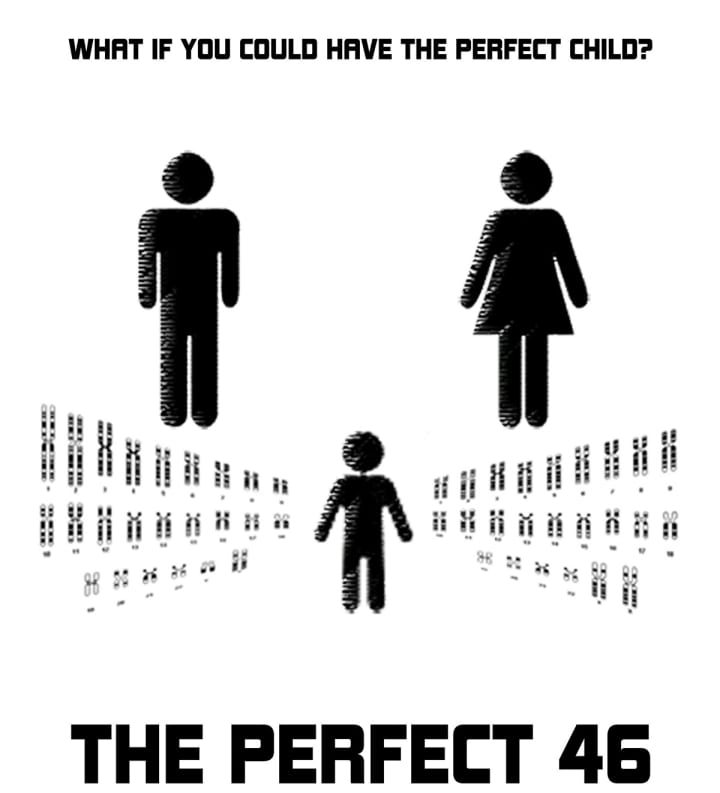
What were some of the struggles you faced as a director when creating The Perfect 46?
Our schedule was very tight. We shot the entire film in 14 days in Los Angeles and Maryland with 1 day off for travel. By the time day 14 came around, I think we were all happy to be shooting simple exteriors in the woods.
Filming the dinner scene in the film (a nine page debate among six characters) was probably the most daunting task of my career. Attempting to film a scene like that, with so much going on, and so much coverage of each actor to film really filled me with anxiety, but I knew if we pulled it off it would be one of the set pieces of the film. I got very lucky with the cast we had for the scene. After I saw the first rehearsal of the scene I was able to relax a little bit and just make sure we had the beats in the scene we needed. Whit and James, in particular, are really just wonderful in that scene. It's crazy to think we filmed that entire scene in one night, a film with a bigger budget might have spent a week just doing that scene.
You have received great reviews from MIT Technology, Science Magazine, and other scientific publications. Did you have the scientific community in mind when creating the film?
I always wanted the film to be accessible to the largest possible audience and this audience includes the science community. I really didn't want to make a film where a geneticist sees it and dismisses the film in the first act. I always wanted to be able to create a conversation about these realities that we'll face and to be able to have them with any audience.
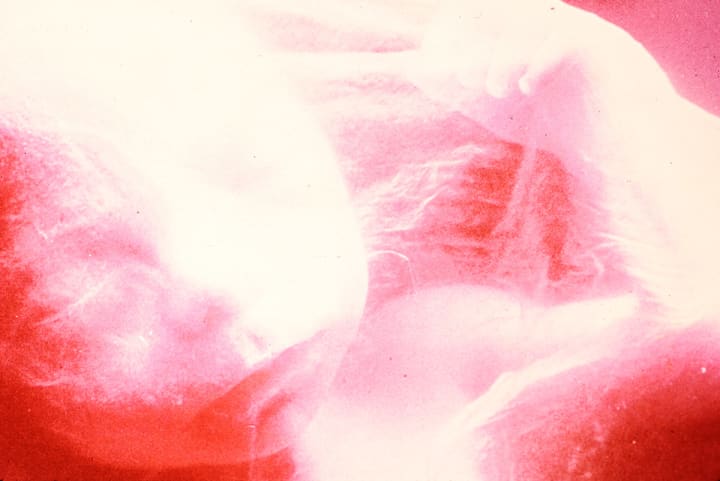
Could you tell me more about the fact-checking process you used?
We had a science advisor on the film, Dr. Jaclynn Moskow, who looked over and corrected/enhanced the script as each draft progressed. At the time I wrote the script, I had no connection to the science community and Jaclynn had been someone I went to high school with who happened to have a background in molecular biology. I'm not sure what I would have done if I hadn't found her.
I reached out to Kevin Davies on twitter, I had read his book The $1000 Genome as part of my research for the film, and he was wonderfully instrumental in reaching out to some of his contacts and bringing the film to last year's Consumer Genetics Conference with a work-in-progress version. Our goal there was to show the film to people who could really give it a proper fact check and see if we had to make any last minute changes to the film. The screening went really well and we didn't end up changing anything science-related from that version of the film.
What is the one thing you would like your viewers to take away from the film?
More than anything else, I'd like the film to stay with you, to keep you thinking well after the credits, and to provoke a lively discussion about the issues talked about in the film.
Has your stance on some of the issues raised in the film changed after making it (e.g., responsibility of knowledge, "playing God,")?
I don't know that my stance has changed but now that I've been around the scientific community a bit, I know that there's so much more to learn about the genome than I had first assumed and so many very intelligent people working in the field on incredibly innovative things that I can't wait to see what comes next and I'm excited to see just how prescient The Perfect 46 ends up being.
About the Creator
Natasha Sydor
brand strategy @ prime video




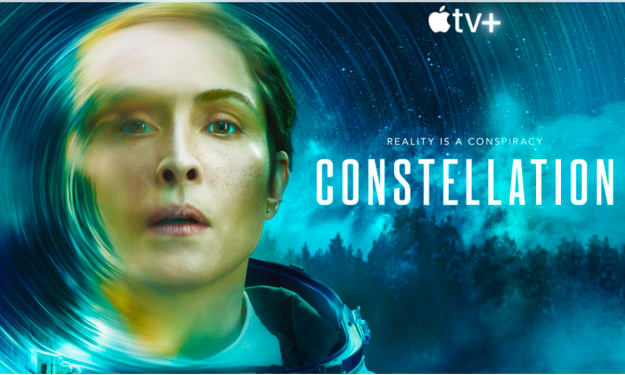

Comments
There are no comments for this story
Be the first to respond and start the conversation.